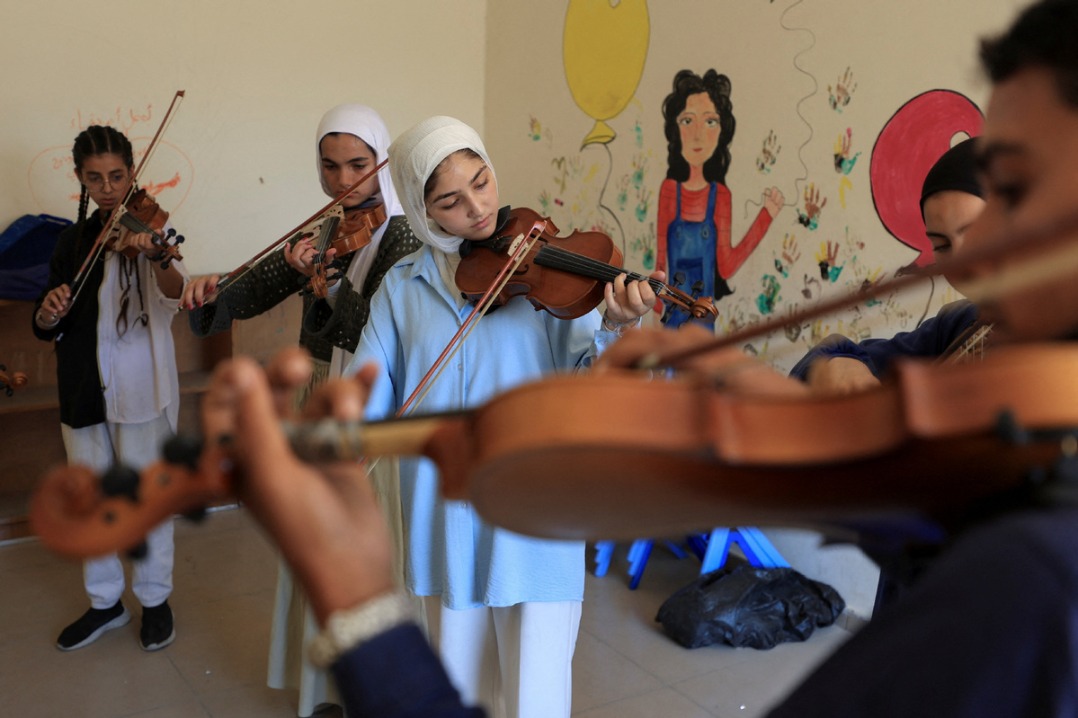Future melodies in ancient keys
Beijing Music Festival promises audiences both classical masterpieces and contemporary innovations, Chen Nan reports.

As the 28th Beijing Music Festival prepares to open, the city is gearing up for a vibrant celebration of music that bridges tradition and modernity.
Running from Oct 10 to 24, this year's festival promises a dynamic fusion of classical and contemporary works, highlighting both Chinese and international composers, while fostering musical dialogues between the East and West.
According to Zou Shuang, the artistic director of the festival, this year's program showcases not only classical masterpieces but also new works from pioneering composers, reflecting a city that embraces its ancient roots while actively shaping contemporary creativity.
The festival's opening and closing concerts will be performed by the China Philharmonic Orchestra, marking its 25th anniversary this year.
The opening concert on Oct 10, conducted by Yu Long, founder of the festival and chairman of the Beijing Music Festival artistic committee, will be held at the National Centre for the Performing Arts and feature pianist Zhang Haochen performing Tchaikovsky's Piano Concerto No 1 alongside Shostakovich's Symphony No 5, commemorating the 50th anniversary of Shostakovich's passing.
The closing concert on Oct 24 will feature a fusion of Eastern and Western musical works, with conductor Yang Yang and soloists including American violinist Gil Shaham and Hungarian mezzo-soprano Ildiko Komlosi.
Under the baton of Yang, the China Philharmonic Orchestra and the chorus of the China National Opera House will perform excerpts from Chinese Kitchen, a music piece by composer Elliot Leung, who was born in Hong Kong and relocated to the United States at the age of 17. On Nov 23, 2024, the Shanghai Symphony Orchestra premiered Chinese Kitchen, a 10-movement piece about 10 Chinese delicacies. This work was commissioned by the Shanghai Symphony Orchestra for its 145th anniversary.
Since its founding in 1998, the festival has prioritized Chinese composers, and this year continues that tradition with works by established and emerging talents.
One of the most anticipated pieces is The Ocean Etched in the Forest by Du Yun, who won the Pulitzer Prize for Music for Angel's Bone in 2017.
Co-directed with Julian Crouch, the production involves artists from the Jino ethnic group in Yunnan province, including He Guiying, an inheritor of the national-level intangible cultural heritage Jino drum dance.
The inheritor has been recording the Jino ethnic group's children as they perform nearly forgotten local folk songs, which are interwoven with music from the American band, OK Miss, featuring Du. The result is an original musical tapestry that transcends time, geography, and generations, blending ancient traditions with contemporary innovations.
During the performance of the Beijing Music Festival on Oct 12, children from the Jino ethnic group will perform with the musicians, which was commissioned by Lincoln Center for the Performing Arts and the Beijing Music Festival.
"This means that the traditional music of China's ethnic groups will reach audiences worldwide through international collaboration," says Zou.
"Tradition is not static; these cultural treasures should be reactivated on today's stage, bringing new energy and vitality."
Another highlight is the BBC Philharmonic Orchestra and conductor John Storgards performing Huang Ruo's new symphonic work City of Floating Sounds on Oct 20. Huang is known for his distinctive orchestral piece that blends Chinese folk music with Western avant-garde music. The performance is paired with an immersive "city exploration" experience, inviting audiences to traverse Beijing while interacting with the music via a bespoke mobile app, blending auditory, visual, and spatial elements.
Opera lovers will be treated to two iconic works spanning over two centuries: the concert version of George Frideric Handel's Rinaldo and Alban Berg's Wozzeck. The latter will be staged on Oct 18 as its China premiere, continuing the Beijing Music Festival's legacy of bringing cutting-edge opera to Chinese audiences.
In line with its commitment to nurturing young talent, the festival features emerging musicians such as pianist An Tianxu, cellist Wang Tianyou, and Japanese pianist Hayato Sumino, who will participate in both performances and masterclasses, demonstrating their unique voices in the classical and crossover music scene.
"These young artists possess exceptional technical skills and distinctive artistic voices," says Yu. "We are providing more opportunities for young musicians to showcase their talents. From classical interpretations to avant-garde crossover explorations, they convey the festival's theme through diverse performances, injecting fresh energy into the future of classical music."
With the goal of making music accessible, the festival will extend its reach beyond traditional concert halls. The "music and travel" initiative invites audiences to explore Beijing's cultural landmarks through interactive music experiences. This innovative project blends the worlds of tourism, music, and community engagement, offering an immersive way to experience the city's cultural life.
"I've noticed many young people watch concerts on their phones, either recorded or livestreamed. While videos can offer a glimpse of music, nothing compares to the full experience of live performances," says Yu. "True magic happens in the shared energy, the immediacy, and the connection with the music and performers. We encourage young people to step away from their screens and embrace that magic — it's where the heart of music beats strongest."

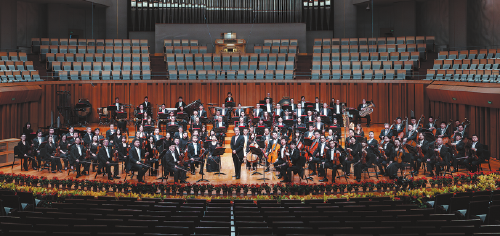
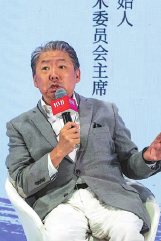
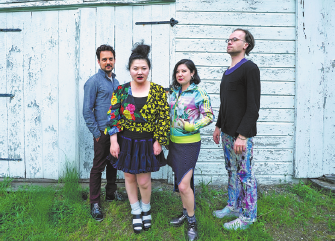
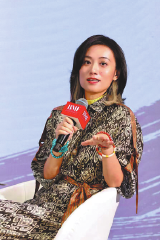
Today's Top News
- US 'freedom of navigation' lacks basis
- China steps up efforts to boost opening-up
- World's highest bridge passes stress test
- China scales up network to fuel growth of AI
- Ancient bronze casting art decoded
- Shenzhen SEZ to continue spearheading reform and opening-up




















